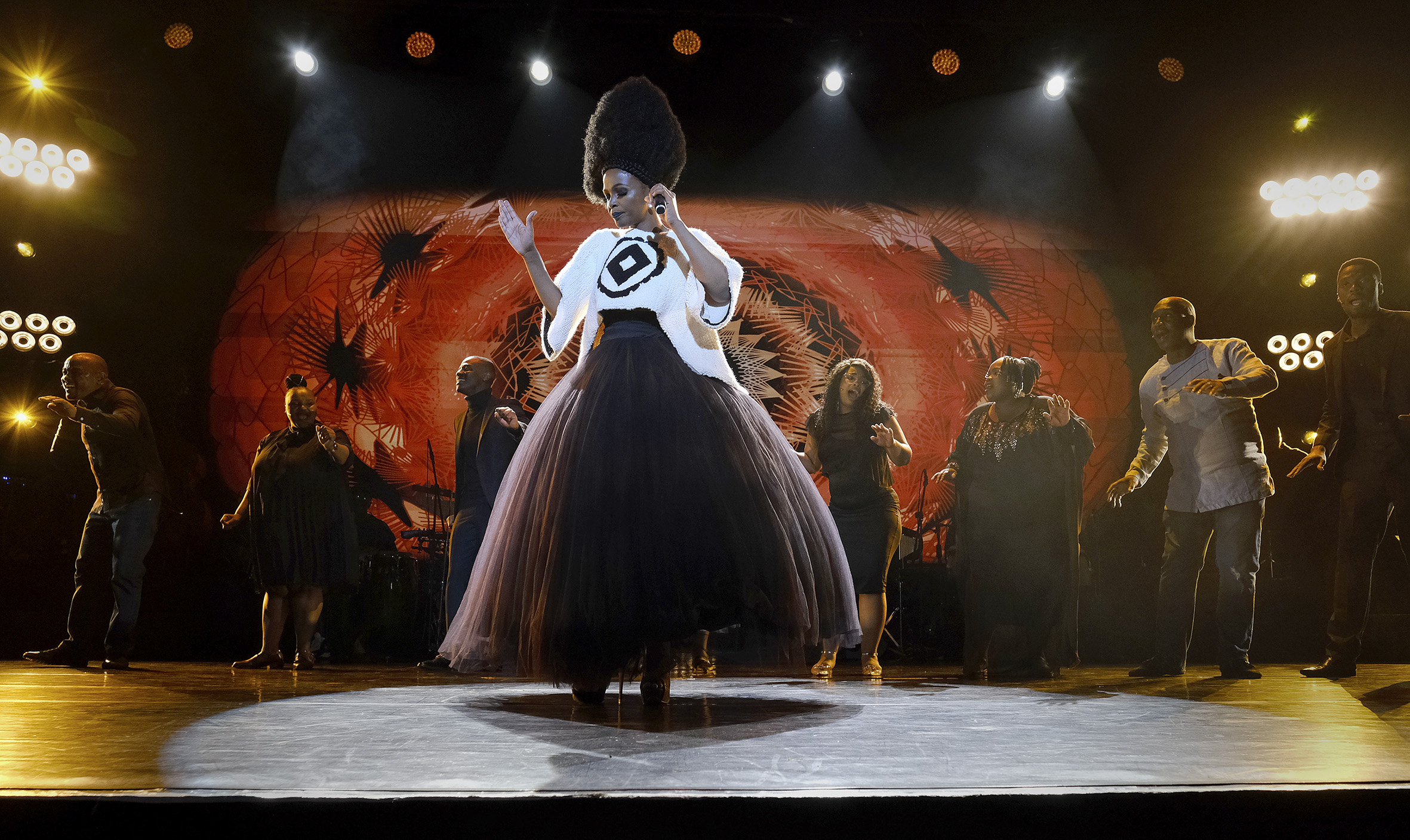‘Moya’ weaves a narrative in movement and song
Artistic collaborators Gregory Maqoma and Simphiwe Dana joined forces once again for Moya, a spiritually themed performance at the Joburg Theatre.
Author:
15 April 2022

When musician Simphiwe Dana and choreographer Gregory Maqoma joined forces for a three-night spiritual music and dance production called Moya, it marked their third project together in an ongoing artistic collaboration.
Performed in The Mandela auditorium at the Joburg Theatre – where Maqoma recently staged his acclaimed dance work Cion – Moya is an artistic journey of reflection for Dana, one that weaves its message through her a cappella roots and the spiritual calling in her music. It was also her return to live performance, having not been on stage since the start of the Covid-19 pandemic.
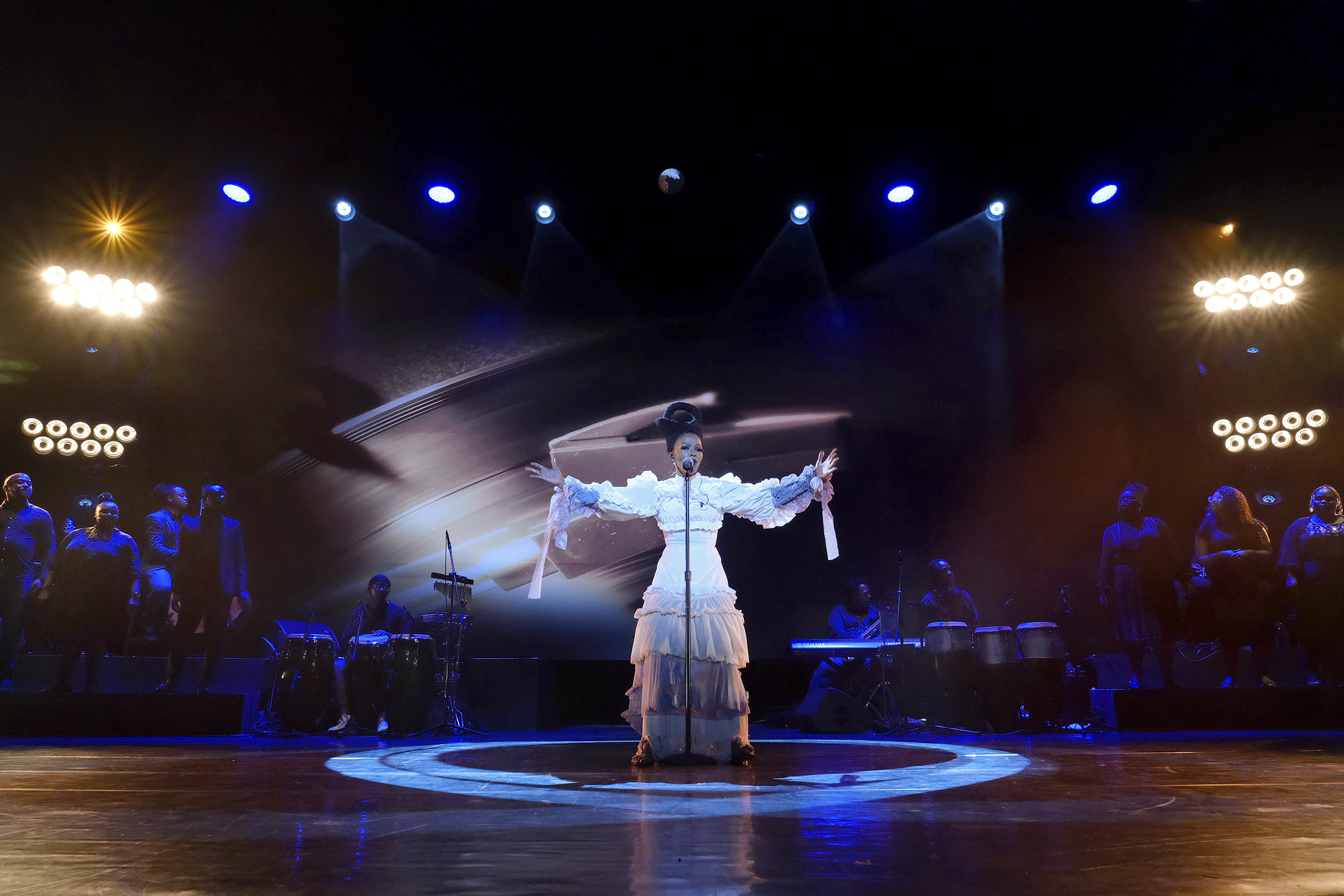
Moya is a journey to the beginning, a deconstruction of Dana’s discography through dance. From Zandisile to Bamako, Dana and her team stripped down and rebuilt songs from her archive, songs that fell through the cracks, as well as created new music. Moya is a return “back to dusty Tsolo, where my voice was shaped by school choirs and churches. You don’t know rhythm until you hear it from hands and feet, with voices thrown to the sky,” says Dana.
Moya also revisits her long-term collaboration with Maqoma and his Vuyani Dance Theatre, as well as her longtime music director, Titi Luzipo. These relationships have been shaped through multiple bodies of work.
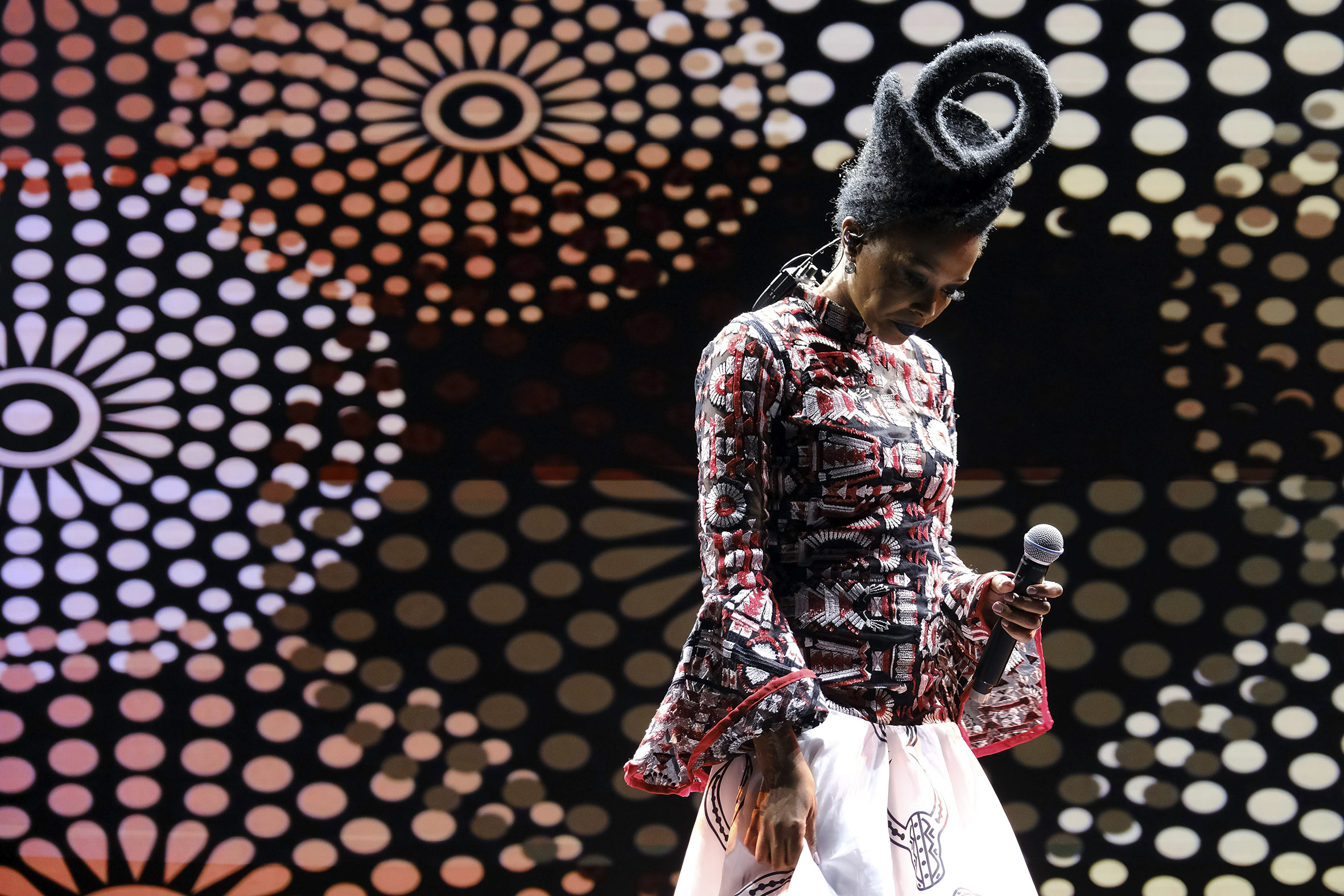
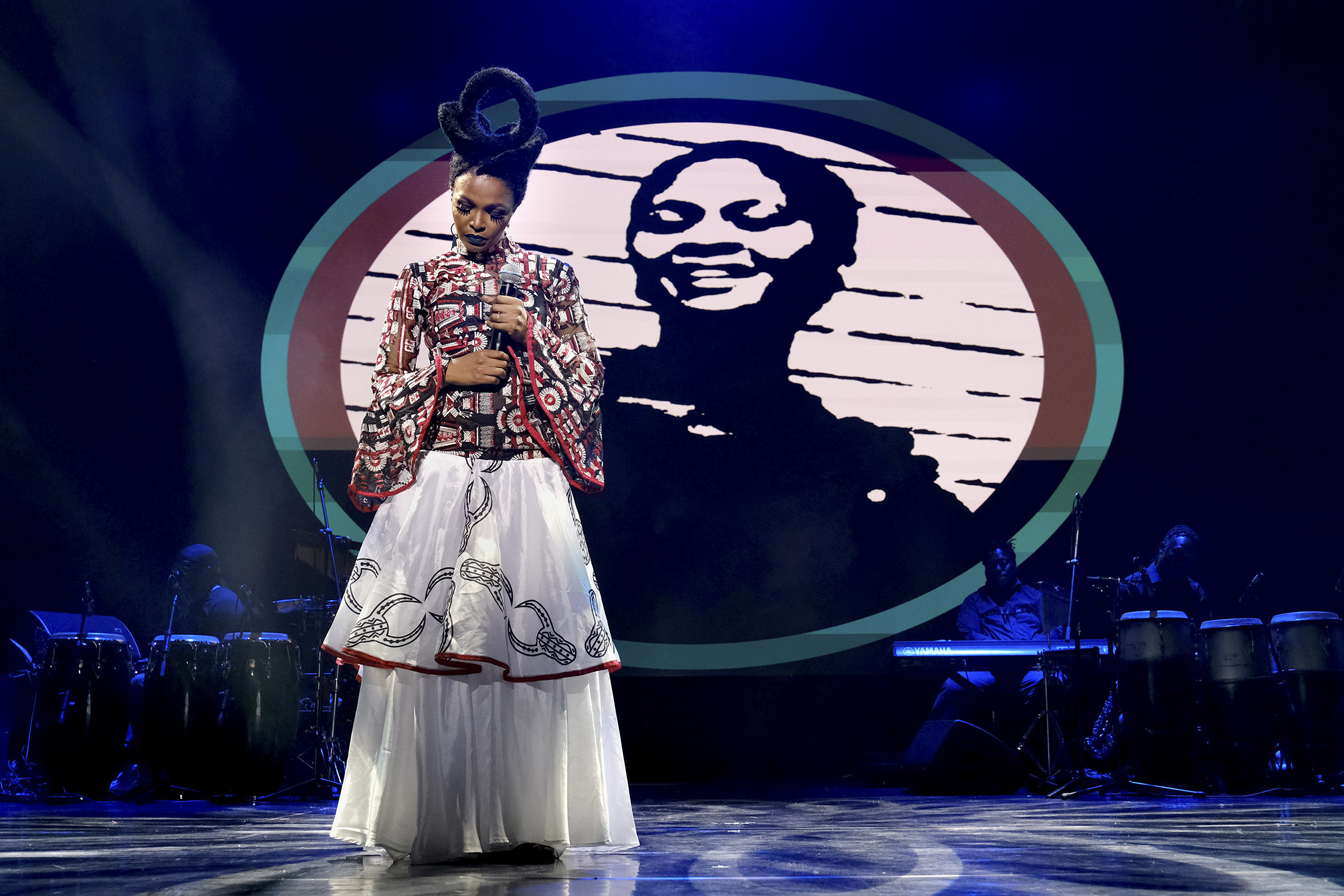
A journey through art forms
Dana and Maqoma met two decades ago, a year before she released her debut album. Now, their collaborations span more than a decade, with five projects between them, including Exit/Exist, the Simphiwe Dana Symphony Experience and Joys of Sharing.
In Exit/Exist, Maqoma explored and canvassed personal and collective history as a descendant of Xhosa traditional leader Jongumsobomvu Maqoma. His performance was supported by a score arranged and composed by Dana, sung by a quartet of South African singers with composer Giuliano Modarelli on guitar. The Simphiwe Dana Symphony Experience, the first and second of the live events and their recordings, form a pan-African project celebrating African identity and featuring Maqoma’s Vuyani Dance Company. Joys of Sharing, directed by Maqoma, was a collaboration between Dana, Grammy Award-winning flautist Wouter Kellerman and the Vuyani dancers.
“Our legacies are interwoven as we strive to tell the story of our age. What I do with music, Greg does with dance. Our long-term vision is the same. This makes it very easy to work together,” says Dana.
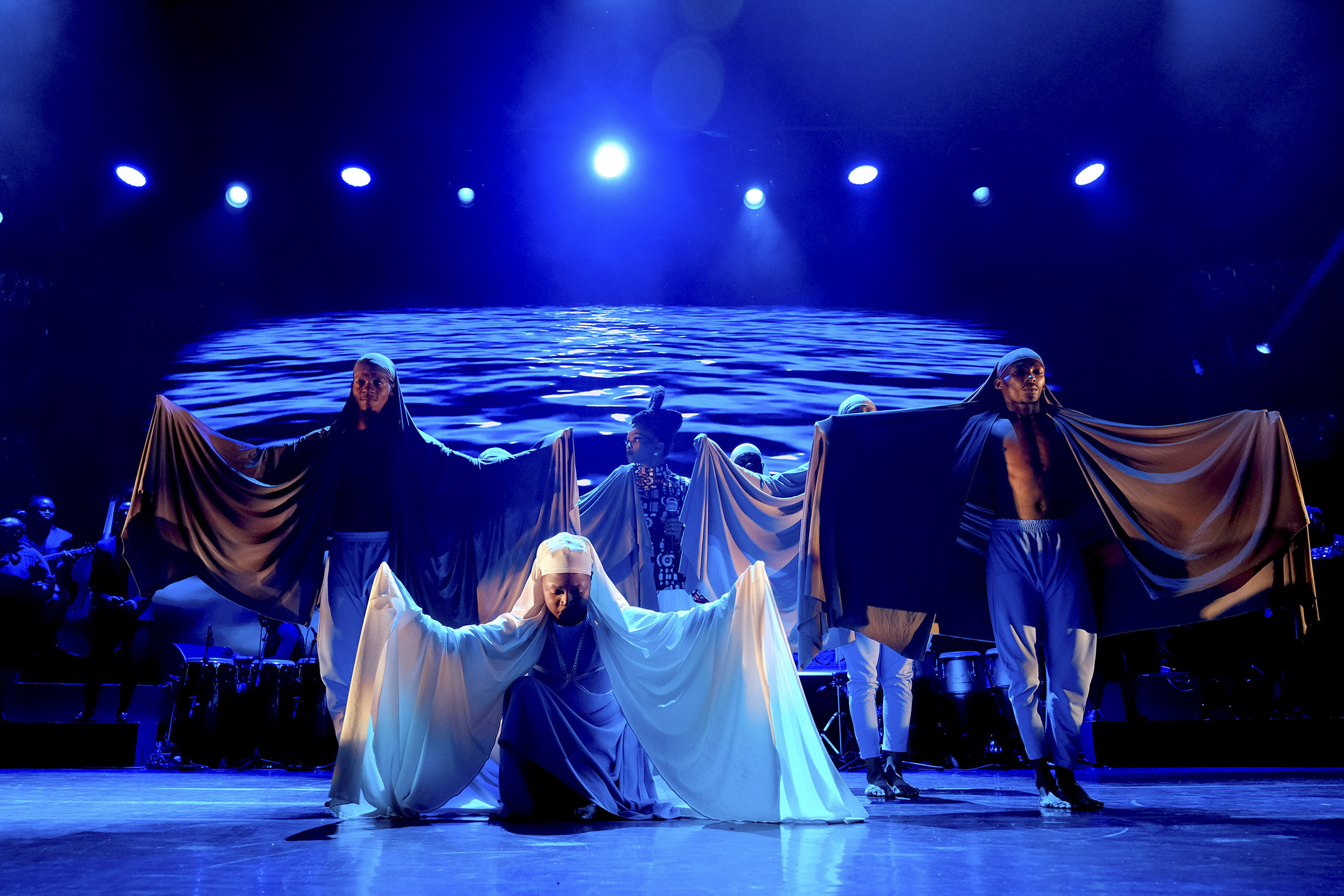
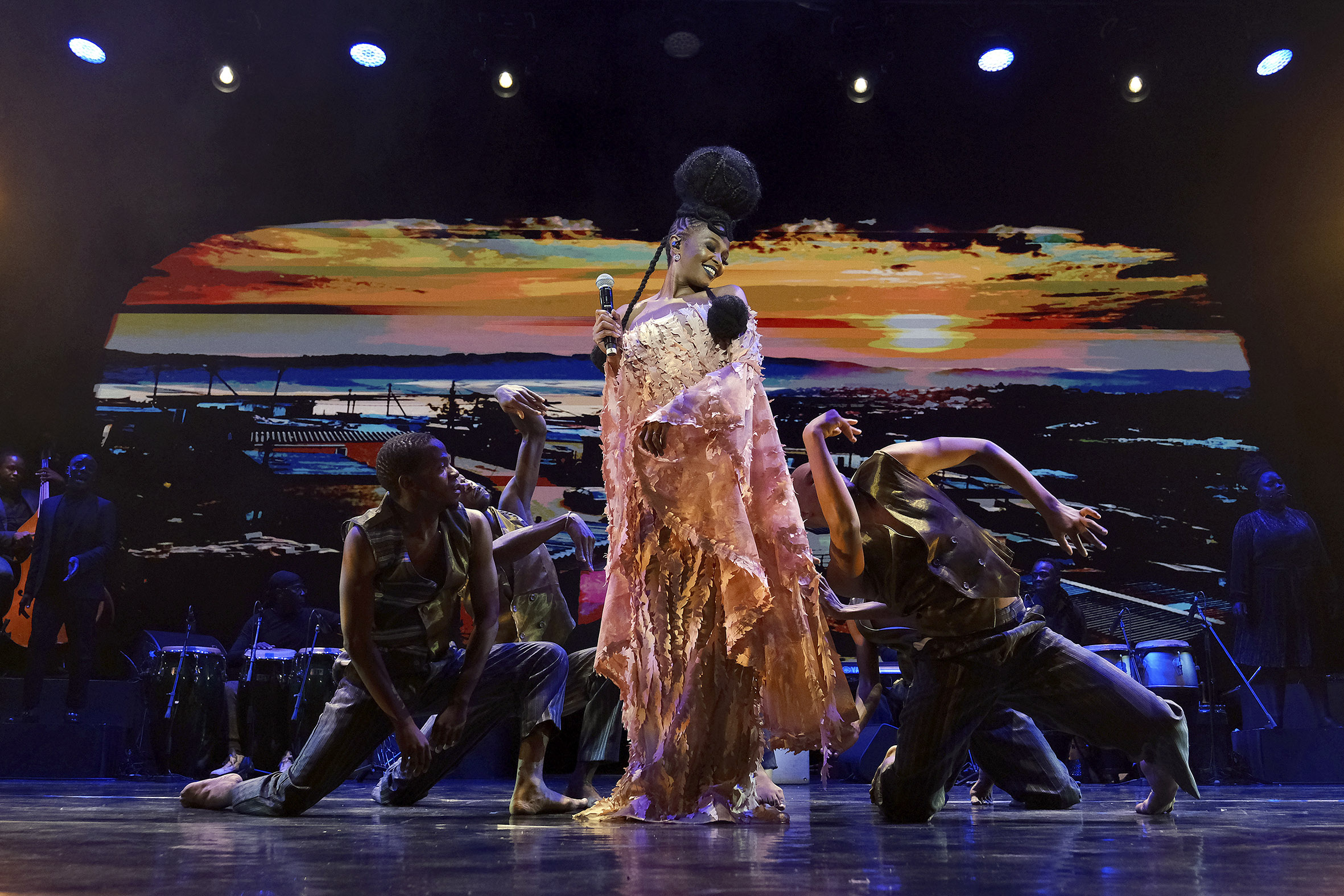
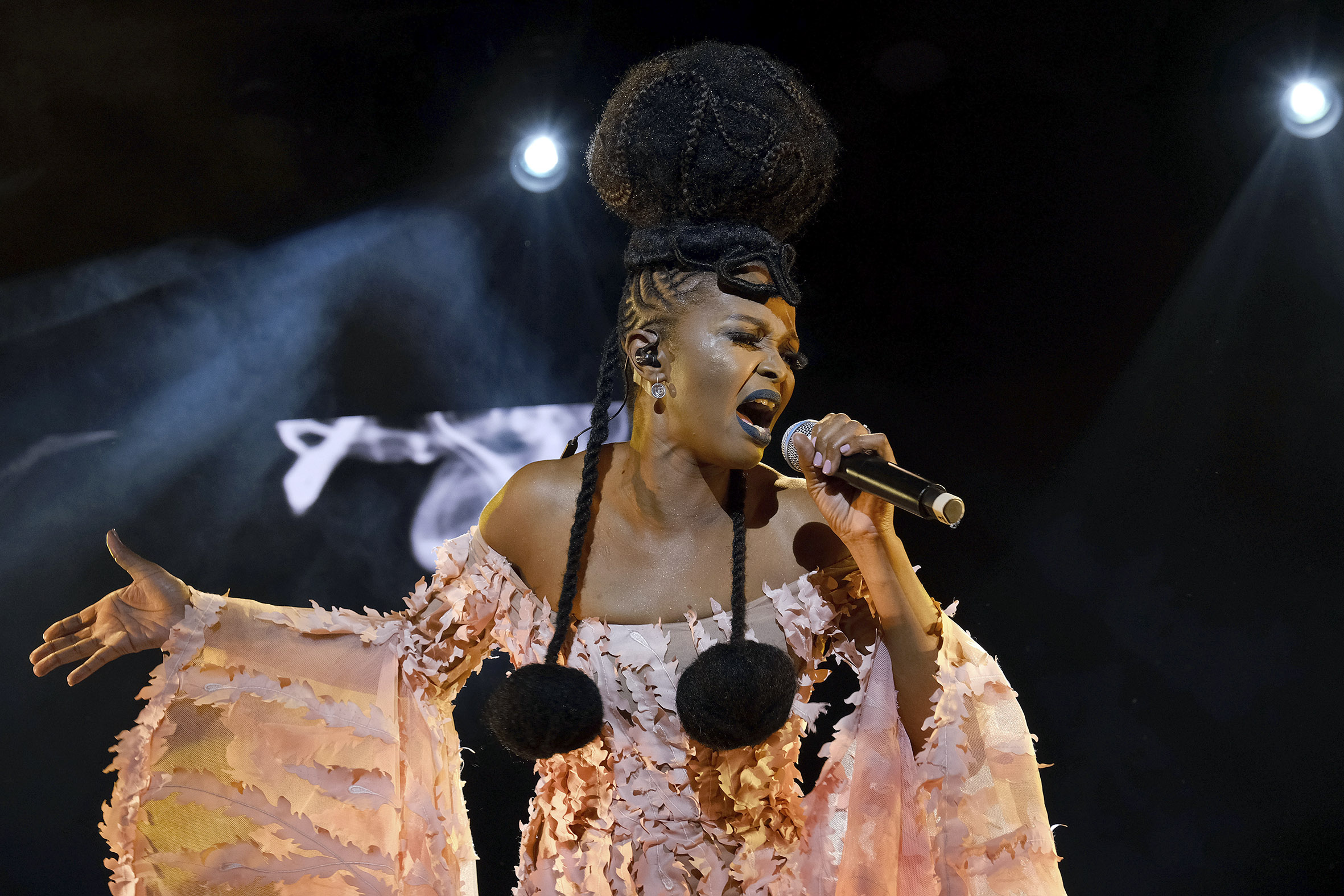
Their merging of artistries is rooted in a shared purpose, aiming to convey more than a musical experience, as the work aims to become a collective narrative experience told through multiple art forms.
“Music brings us closer to healing because it brings us closer to ourselves,” says Dana.
“A dance is a spirit trapped in the body,” adds Maqoma. “It is awakened by the music. Simphiwe’s voice is a catalyst for a spiritually charged body. The dance in this case is the spirit.”
The choreography always starts with feeling, rather than a systematic beginning, says Maqoma, as he details his practice of aligning the music to dance. Hence, he spent quite some time in music rehearsals to allow the movement process to flow freely from the musical arrangements that Luzipo put together.
Maqoma is the creative director of Moya and describes some moments of the show as “requiring the entire team of dancers to be on stage to drive the story, yet some are so delicate that they simply require a duet”.
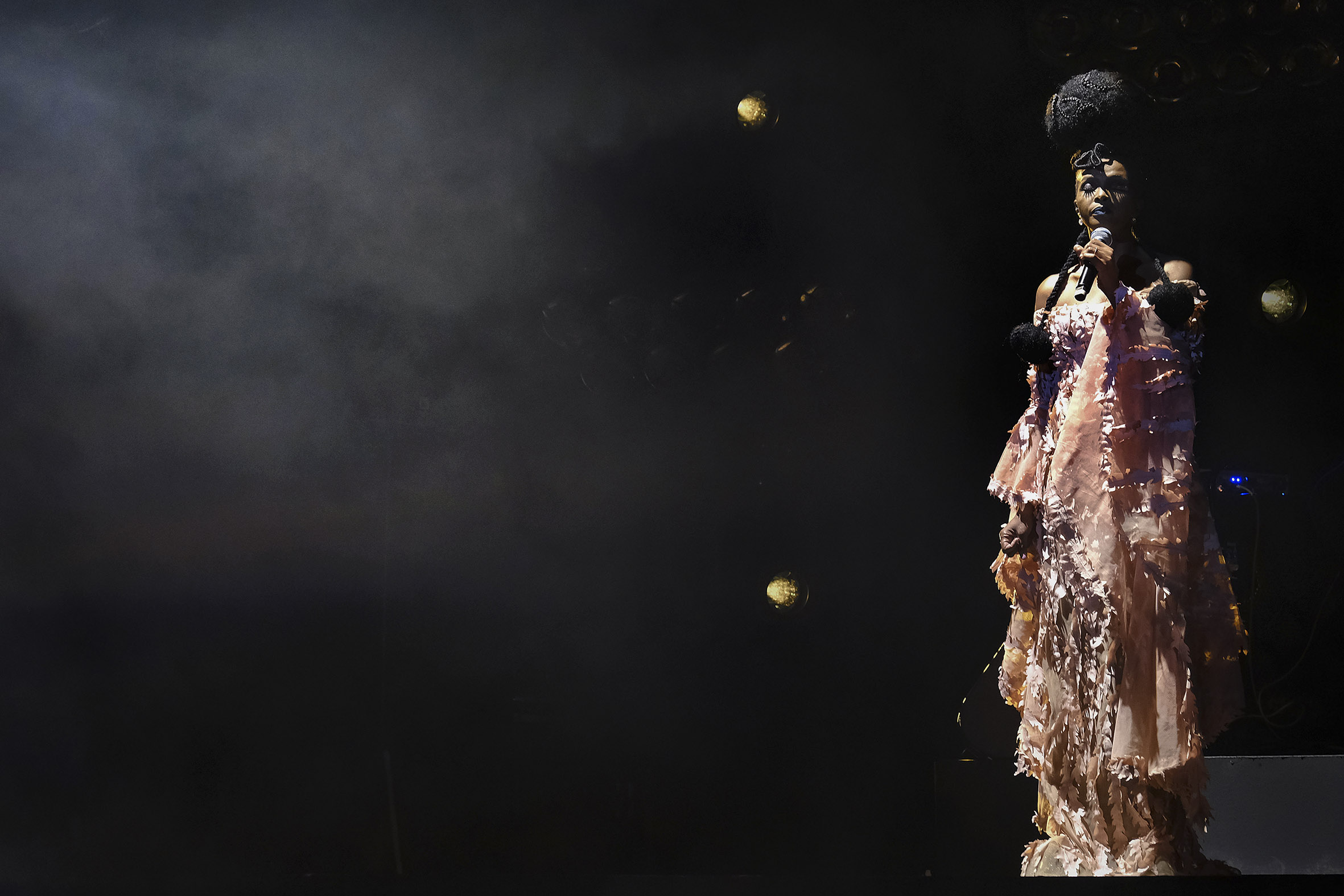
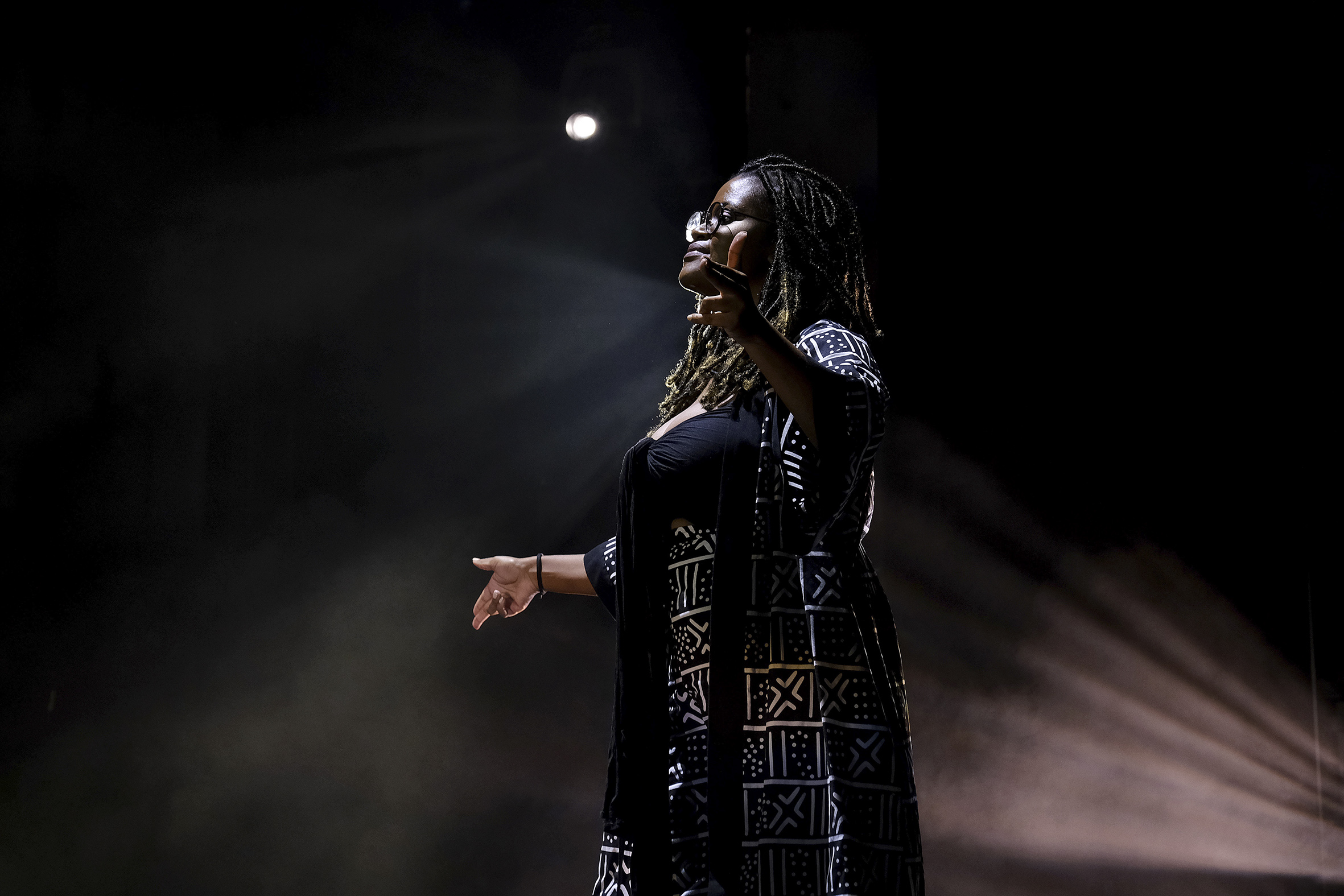
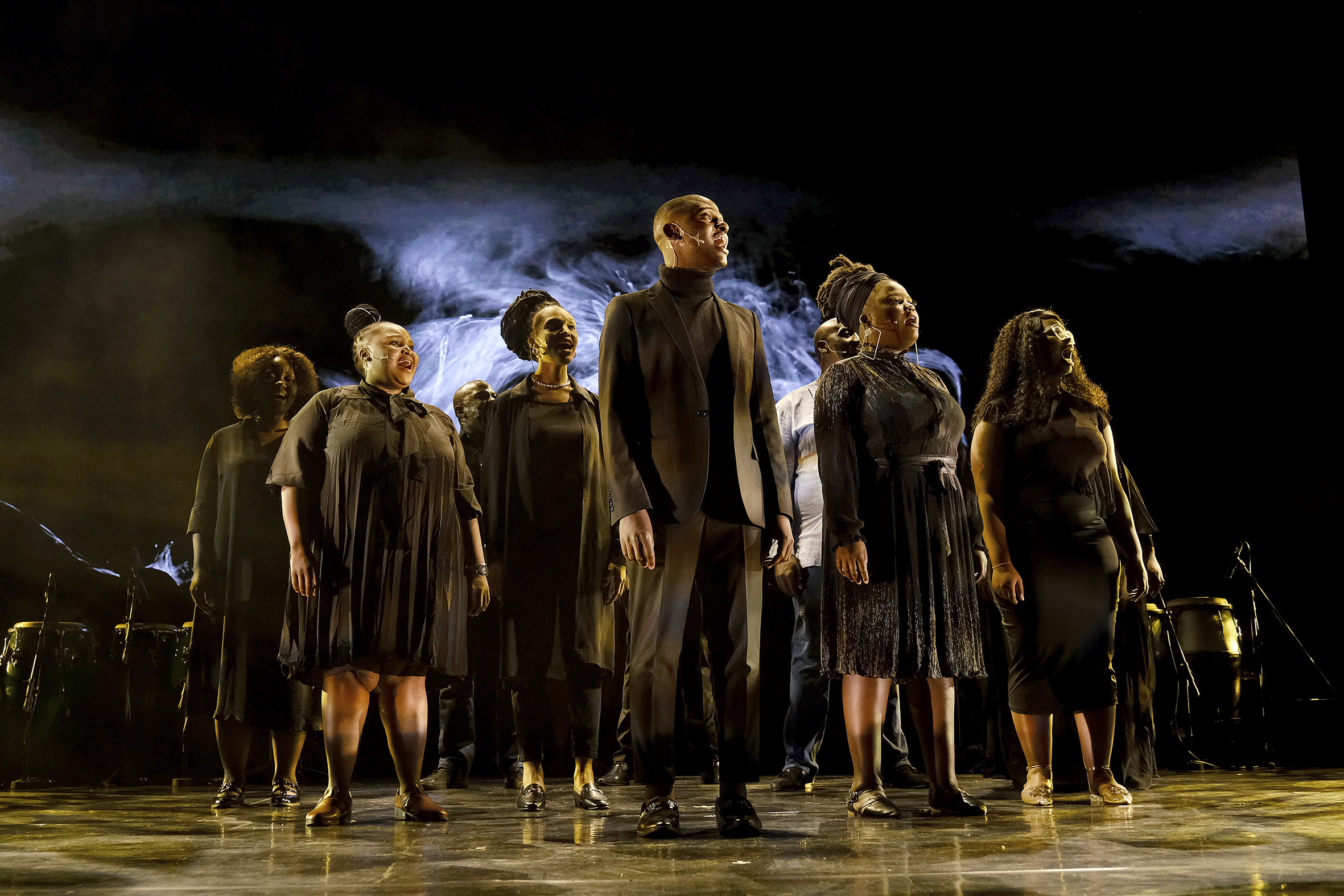
For our time
The title alludes to the ascendance. The show’s timing aligns seamlessly with its theme in that it is a calling to heal, stemming from two challenging years worldwide.
But as much as it is a public, shared experience, it is also personal. The new songs Dana penned for Moya provided catharsis and a divine connection after the loss of both her parents last year. She has been writing “Moya-themed songs” since her mother’s death. The songs include Moya – Spirit, This Is My Worship, My Offering, My Air, My Spirit, My Breath, performed for the first time at the show. The music is intended for collective healing, mirroring her own.
Dana adds that “many of us, questioning the precariousness of our existence, turned to the spiritual for answers. Or rather, for a centeredness in the midst of the worst storm of our lives. My mother has always wanted me to do work that explores my relationship with the Divine. With her passing, it became a need for my own healing.”
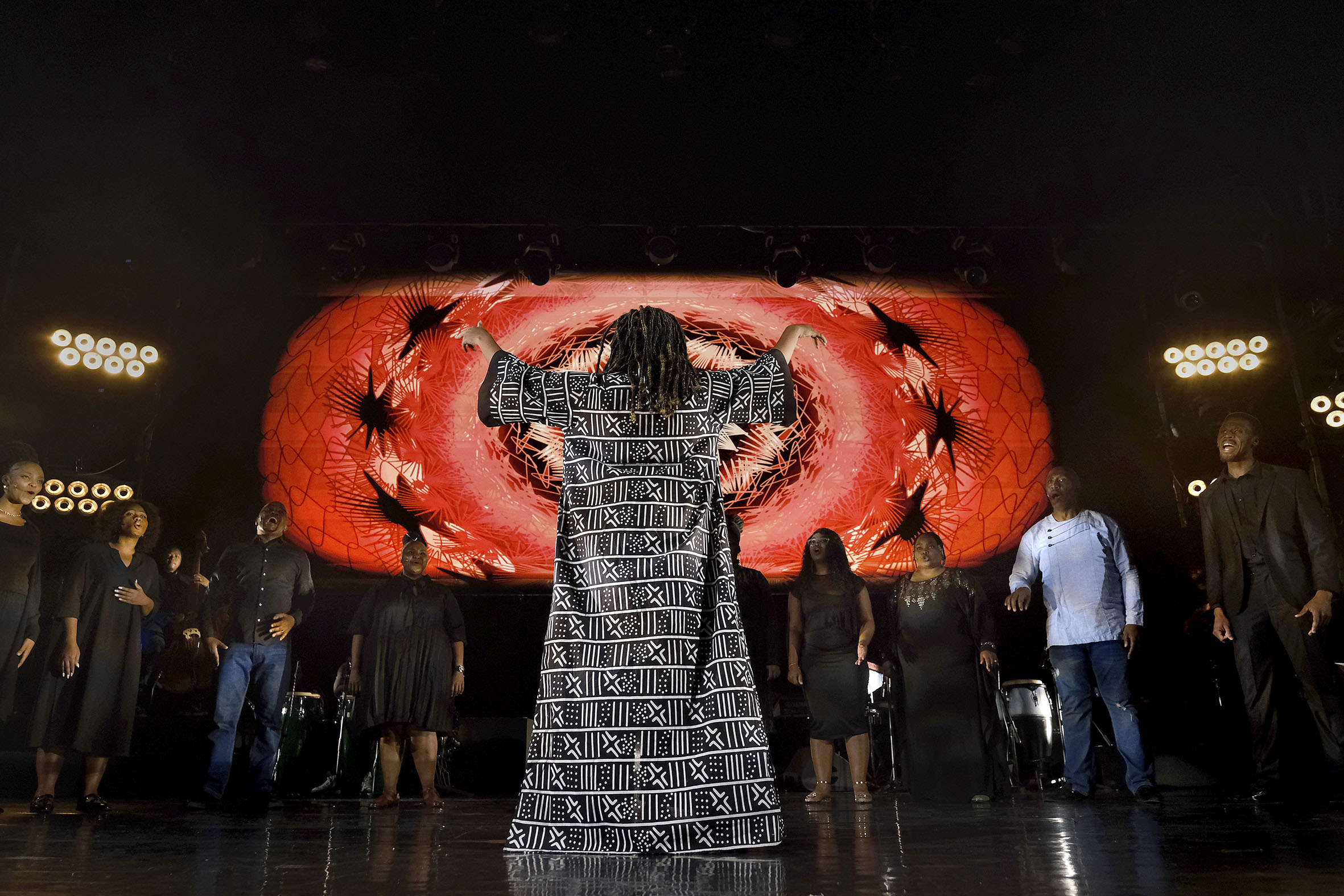
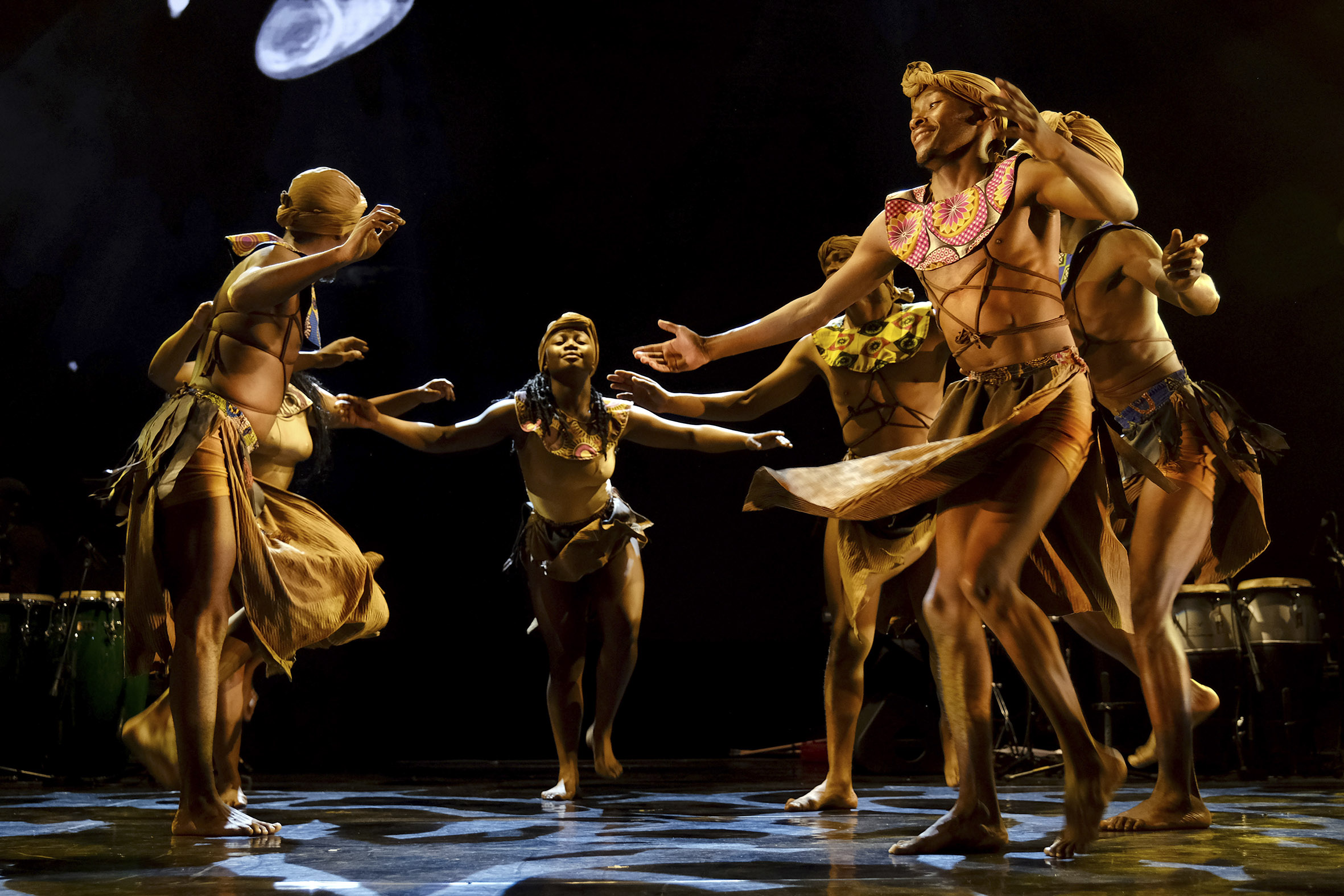
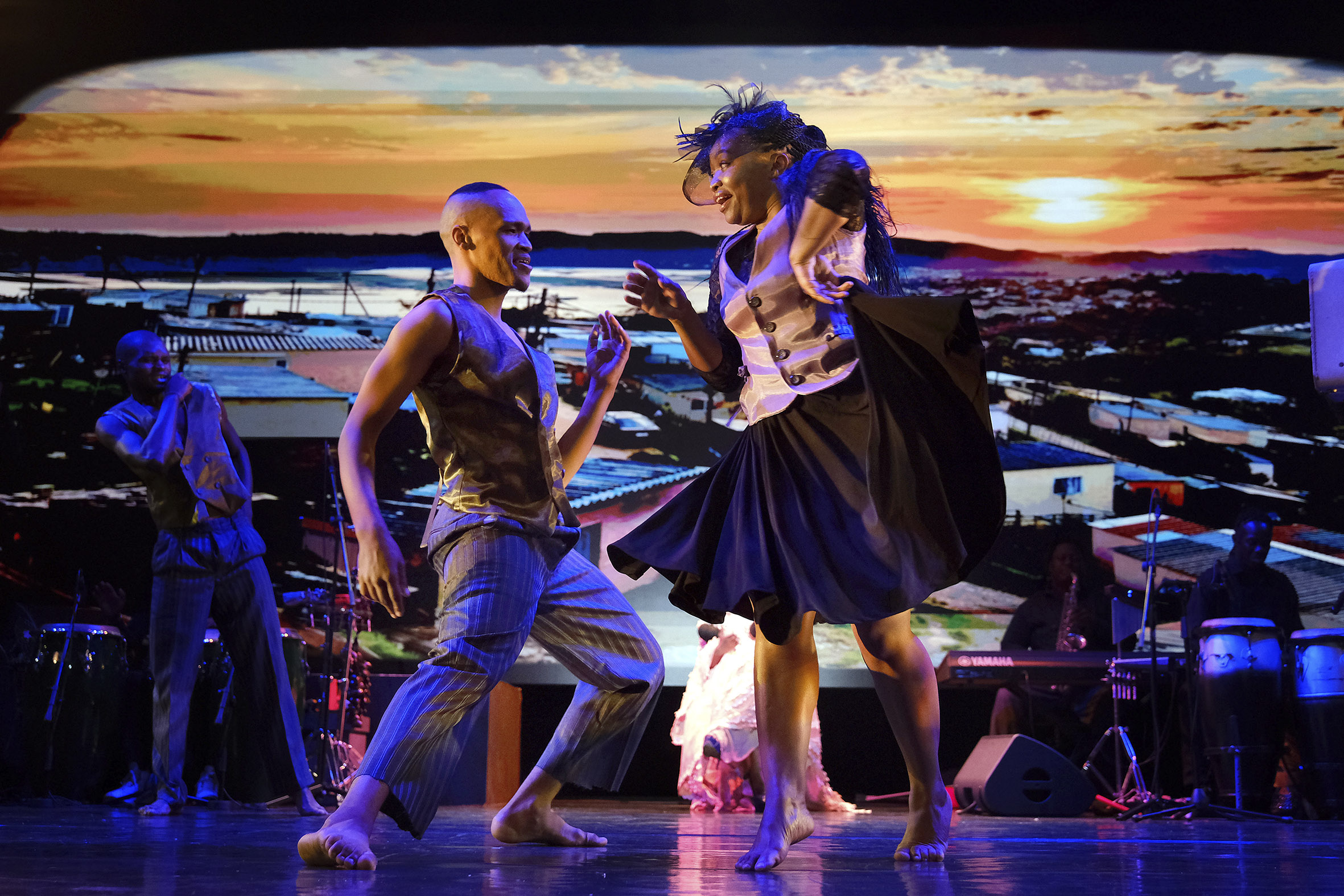
The set list journeys from her successful breakout album Zandisile to the present, including songs from her latest offering Bakamo, which was co-produced by legendary Malian singer-songwriter Salif Keïta.
A distinct thread of Dana’s body of work is that it comes from a deeply felt place, so much so that it transcends language barriers, as she sings mostly in isiXhosa. Thus Moya is an organic expression of that, aimed at mutual rejuvenation between audience and performers.
At its heart, Moya is an addition to the ongoing artistic conversation taking place through the collaborative bodies of work by Dana and Maqoma. Within it, performers, dancers and the audience become a congregation, joined in a moment that aims to offer healing, reflection and release, given the challenging years gone by, and present an offering of optimism in the present.
